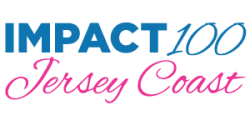By Janet Mazur Cavano
 This is your first year as an Impact member; what led you to join?
This is your first year as an Impact member; what led you to join?
Some of the non-profit agencies I’ve worked with were grant recipients, and I kept hearing about the wonderful programs those grants provided. I wondered who ARE these wonderful people and what IS this organization that’s providing the grants? I later went to an Impact recruiting event at a private home and then to another in February at Langosta Lounge in Asbury, where I learned more.
What inspires you about the organization?
My heart has always been to work with women; women are particularly powerful. We have a power that is unique to us and when we gather together, we can do wonderful things.
Meet more of our members at an upcoming event. Learn more about Impact 100!
When did you realize Impact 100 was making a difference?
I have worked with non-profits for nearly 20 years. When you get $100,000 that can go into programming that your agency can create – wow! These grants can do incredible things to keep great organizations going!
You’re serving on the new Diversity and Inclusion Committee. What can you tell us about that experience?
I commend Impact 100 for being aware of racial disparities and asking, ‘Are we doing our best to be inclusive of everyone?”
As a personal sidebar, it was women in the south, the United Daughters of the Confederacy, who kept the lost cause going to reflect their image of the Civil War (editor’s note: the group has been labeled neo-confederate by the Southern Poverty Law Center, which monitors hate groups and extremists). To me, Impact 100 is looking to do the reverse. We are asking, how can we bring truth and light and opportunity to people of color? How can we rid ourselves, if we are suffering, from White privilege?
This committee is very, very new; it’s embryonic. Going fast will not be helpful. Finding out information, being sensitive to the membership and going slowly is key.
What’s the most rewarding part of being an Impact 100 JC member?The strength that you get from meeting other women doing wonderful things in their sphere. Hearing other points of view sharpens your own and the women I have met have been amazing.
What would you like to see Impact accomplish over the next few years?
By 2023-24, I would really love to see at least 1,000 women join! There are very meaningful, substantive non-profits in Monmouth County; it would be great to do something for them.
What advice would you offer to philanthropic-minded women who want to get involved with their communities but aren’t sure how?
When people are looking for purpose, I ask them, what makes you smile so big when you see it done that your face hurts? Or what annoys you so much that absolutely makes you sick? When you find out what makes you smile, you look for who or what in your community is doing that! If it’s not there, you start it!
As for what makes you sick, go to your city hall, your board of education or your town council, whatever is connected to ‘that thing,” and find out what you need to do. You’d be surprised to learn that many corporations have a foundation that might be doing the thing you are looking to do.
Tell us about your business
I do life-coaching and training. My company is called Melia Bloom, building people, places and purpose. Melia actually means “honey,” which is what my name, Pamela, means!
I have a program, Her Harvest, in which I take five women who know it’s time to move on to the next level. Now that we’re virtual, we can go nationwide or worldwide!
Seeing the women grow and glow is amazing. The unemployed get employed and the employed leave and flourish. I also work with faith-based organizations that are looking to connect with non-profits—like business to business matchmaking.
What’s your super power?
Love! I was a transition coach for a youth program, New Jersey Youth Corps at Interfaith Neighbors, and I still see some of those young people. Some of them say, ‘You really loved us and dealt with us, and we weren’t very nice to you!’ They love and appreciate me. Love wears you down.
How about the most recent book you’ve read?
“White Fragility; why it’s so hard for white people to talk about racism,” by Robin DiAngelo. It put language around things I’ve been thinking. It felt like a sigh of relief that it was written by a white woman who does the work to help people deal with the issue of race.
What’s a fun fact about you that not many people know?
I love to collage! I love to take bits and pieces of words or phrases and put them together to create something of beauty that sends a message. I’ve also done that with vision boards. Anything you are interested in or frustrated by – if you get it out there in a physical space, it helps to eradicate it from your internal space.
An entrepreneur, author, speaker and community activist, Pamela lives in Asbury Park.
